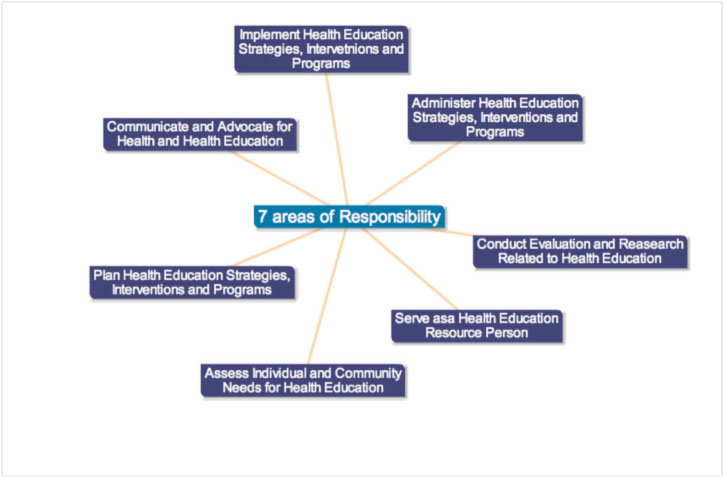|
Kenya Medical Training College
The Kenya Medical Training College (KMTC) is a state Corporation under the Ministry of Health entrusted with the role of training of the various health disciplines in the health sector, to serve the local, regional and international markets. The College aligns its strategies to those of the health sector, which in turn draws its focus from the national Agenda. Foundation In 1990, an act of Parliament under the Ministry of Health established KMTC. Academics KMTC is a college with a majority of enrollments in certificate, diploma and post basic diploma levels. The college has been accredited by the Ministry of education and is under the Ministry of Health. KMTC operates on an academic calendar with two distinct semesters. The first semester begins during early September to late January. The second semester begins in early February to late July. KMTC students use a combination of the department's course number and the number assigned to the class to identify their subjects. ... [...More Info...] [...Related Items...] OR: [Wikipedia] [Google] [Baidu] |
Nairobi, Kenya
Nairobi ( ) is the Capital city, capital and largest city of Kenya. The name is derived from the Maasai language, Maasai phrase ''Enkare Nairobi'', which translates to "place of cool waters", a reference to the Nairobi River which flows through the city. The city proper had a population of 4,397,073 in the 2019 census, while the metropolitan area has a projected population in 2022 of 10.8 million. The city is commonly referred to as the Green City in the Sun. Nairobi was founded in 1899 by colonial authorities in British East Africa, as a rail depot on the Uganda#Railroad, Uganda - Rail transport in Kenya, Kenya Railway.Roger S. Greenway, Timothy M. Monsma, ''Cities: missions' new frontier'', (Baker Book House: 1989), p.163. The town quickly grew to replace Mombasa as the capital of Kenya in 1907. After independence in 1963, Nairobi became the capital of the Republic of Kenya. During Kenya's colonial period, the city became a centre for the colony's coffee, tea and sisal indust ... [...More Info...] [...Related Items...] OR: [Wikipedia] [Google] [Baidu] |
Kenya
) , national_anthem = "Ee Mungu Nguvu Yetu"() , image_map = , map_caption = , image_map2 = , capital = Nairobi , coordinates = , largest_city = Nairobi , official_languages = Constitution (2009) Art. 7 ational, official and other languages"(1) The national language of the Republic is Swahili. (2) The official languages of the Republic are Swahili and English. (3) The State shall–-–- (a) promote and protect the diversity of language of the people of Kenya; and (b) promote the development and use of indigenous languages, Kenyan Sign language, Braille and other communication formats and technologies accessible to persons with disabilities." , languages_type = National language , languages = Swahili , ethnic_groups = , ethnic_groups_year = 2019 census , religion = , religion_year = 2019 census , demonym = ... [...More Info...] [...Related Items...] OR: [Wikipedia] [Google] [Baidu] |
KMTC
KMTC (91.9 FM) is a radio station licensed to Russellville, Arkansas Russellville is the county seat and largest city in Pope County, Arkansas, United States, with a 2021 estimated population of 29,338. It is home to Arkansas Tech University. Arkansas Nuclear One, Arkansas' only nuclear power plant is nearby. Rus ..., United States, and serving the Arkansas River Valley. The station is owned by Russellville Educational Broadcast Foundation. Specialty shows KMTC produces two teaching programs in-house. "Jesus Is Alive" with Tom Underhill which airs daily and "Go Light Your World" with Bonnie Underhill and Susan Allen which airs Monday through Friday. References External links Official Website MTC MTC {{Arkansas-radio-station-stub ... [...More Info...] [...Related Items...] OR: [Wikipedia] [Google] [Baidu] |
Educational Accreditation
Educational accreditation is a quality assurance process under which services and operations of educational institutions or programs are evaluated and verified by an external body to determine whether applicable and recognized standards are met. If standards are met, accredited status is granted by the appropriate agency. In most countries, the function of educational accreditation is conducted by a government organization, such as the Ministry of Education. The United States government instead delegates the quality assurance process to private non-profit organizations. Those organizations are formally called accreditors. In order to receive federal funding and any other type of federal recognition, all accreditors in the US must, in turn, be recognized by the National Advisory Committee on Institutional Quality and Integrity (NACIQI), which is an advisory body to the U.S. Secretary of Education. The federal government is, therefore, still the top-level architect and controlling ... [...More Info...] [...Related Items...] OR: [Wikipedia] [Google] [Baidu] |
Clinical Officer
A clinical officer (CO) is a gazetted officer who is qualified and licensed to practice medicine. In Kenya the basic training for clinical officers starts after high school and takes four or five years ending on successful completion of a one-year internship in a teaching hospital and registration at the Clinical Officers Council where annual practice licenses are issued. This is followed by a three-year apprenticeship under a senior clinical officer or a senior medical officer which must be completed before issuance of a practising certificate and a Master Facility List number for their own private practice or before promotion from the entry level training grade for those who remain employed. A further two-year bachelor's degree level training is undertaken by those who wish to leave general practice and specialize in one branch of medicine such as paediatrics, orthopaedics or psychiatry. Unique Master Facility List numbers are generated from a national WHO-recommended datab ... [...More Info...] [...Related Items...] OR: [Wikipedia] [Google] [Baidu] |
Environmental Health
Environmental health is the branch of public health concerned with all aspects of the natural and built environment affecting human health. In order to effectively control factors that may affect health, the requirements that must be met in order to create a healthy environment must be determined. Environmental health focuses on the natural and built environments for the benefit of human health. The major sub-disciplines of environmental health are environmental science, toxicology, environmental epidemiology, and environmental and occupational medicine. Definitions WHO definitions Environmental health was defined in a 1989 document by the World Health Organization (WHO) as: Those aspects of human health and disease that are determined by factors in the environment. It is also referred to as the theory and practice of accessing and controlling factors in the environment that can potentially affect health. A 1990 WHO document states that environmental health, as used by the W ... [...More Info...] [...Related Items...] OR: [Wikipedia] [Google] [Baidu] |
Health Education
Health education is a profession of educating people about health. Areas within this profession encompass environmental health, physical health, social health, emotional health, intellectual health, and spiritual health, as well as sexual and reproductive health education. Health education can be defined as the principle by which individuals and groups of people learn to behave in a manner conducive to the promotion, maintenance, or restoration of health. However, as there are multiple definitions of health, there are also multiple definitions of health education. In the U.S., the Joint Committee on Health Education and Promotion Terminology of 2001 defined Health Education as "any combination of planned learning experiences based on sound theories that provide individuals, groups, and communities the opportunity to acquire information and the skills needed to make quality health decisions." The World Health Organization (WHO) defined Health Education as consisting of "conscio ... [...More Info...] [...Related Items...] OR: [Wikipedia] [Google] [Baidu] |
Medical Education
Medical education is education related to the practice of being a medical practitioner, including the initial training to become a physician (i.e., medical school and internship (medical), internship) and additional training thereafter (e.g., Residency (medicine), residency, Fellowship (medicine), fellowship, and continuing medical education). Medical education and training varies considerably across the world. Various teaching methodologies have been used in medical education, which is an active area of educational research. Medical education is also the subject-didactic academic field of educating medical doctors at all levels, including entry-level, post-graduate, and continuing medical education. Specific requirements such as entrustable professional activities must be met before moving on in stages of medical education. Common techniques and evidence base Medical education applies theories of pedagogy specifically in the context of medical education. Medical education has ... [...More Info...] [...Related Items...] OR: [Wikipedia] [Google] [Baidu] |
Medical Engineering
Biomedical engineering (BME) or medical engineering is the application of engineering principles and design concepts to medicine and biology for healthcare purposes (e.g., diagnostic or therapeutic). BME is also traditionally logical sciences to advance health care treatment, including diagnosis, monitoring, and therapy. Also included under the scope of a biomedical engineer is the management of current medical equipment in hospitals while adhering to relevant industry standards. This involves procurement, routine testing, preventive maintenance, and making equipment recommendations, a role also known as a Biomedical Equipment Technician (BMET) or as clinical engineering. Biomedical engineering has recently emerged as its own study, as compared to many other engineering fields. Such an evolution is common as a new field transition from being an interdisciplinary specialization among already-established fields to being considered a field in itself. Much of the work in biomedica ... [...More Info...] [...Related Items...] OR: [Wikipedia] [Google] [Baidu] |
Nursing
Nursing is a profession within the health care sector focused on the care of individuals, families, and communities so they may attain, maintain, or recover optimal health and quality of life. Nurses may be differentiated from other health care providers by their approach to patient care, training, and scope of practice. Nurses practice in many specialties with differing levels of prescription authority. Nurses comprise the largest component of most healthcare environments; but there is evidence of international shortages of qualified nurses. Many nurses provide care within the ordering scope of physicians, and this traditional role has shaped the public image of nurses as care providers. Nurse practitioners are nurses with a graduate degree in advanced practice nursing. They are however permitted by most jurisdictions to practice independently in a variety of settings. Since the postwar period, nurse education has undergone a process of diversification towards advanced a ... [...More Info...] [...Related Items...] OR: [Wikipedia] [Google] [Baidu] |
Occupational Therapy
Occupational therapy (OT) is a global healthcare profession. It involves the use of assessment and intervention to develop, recover, or maintain the meaningful activities, or ''occupations'', of individuals, groups, or communities. The field of OT consists of health care practitioners trained and educated to improve mental and physical performance. Occupational therapists specialize in teaching, educating, and supporting participation in any activity that occupies an individual's time. It is an independent health profession sometimes categorized as an allied health profession and consists of occupational therapists (OTs) and occupational therapy assistants (OTAs). While OTs and OTAs have different roles, they both work with people who want to improve their mental and or physical health, disabilities, injuries, or impairments. The American Occupational Therapy Association defines an occupational therapist as someone who "helps people across their lifespan participate in the thing ... [...More Info...] [...Related Items...] OR: [Wikipedia] [Google] [Baidu] |
Pharmacy
Pharmacy is the science and practice of discovering, producing, preparing, dispensing, reviewing and monitoring medications, aiming to ensure the safe, effective, and affordable use of medicines. It is a miscellaneous science as it links health sciences with pharmaceutical sciences and natural sciences. The professional practice is becoming more clinically oriented as most of the drugs are now manufactured by pharmaceutical industries. Based on the setting, pharmacy practice is either classified as community or institutional pharmacy. Providing direct patient care in the community of institutional pharmacies is considered clinical pharmacy. The scope of pharmacy practice includes more traditional roles such as compounding and dispensing of medications. It also includes more modern services related to health care including clinical services, reviewing medications for safety and efficacy, and providing drug information. Pharmacists, therefore, are experts on drug therapy and a ... [...More Info...] [...Related Items...] OR: [Wikipedia] [Google] [Baidu] |





.jpg)
